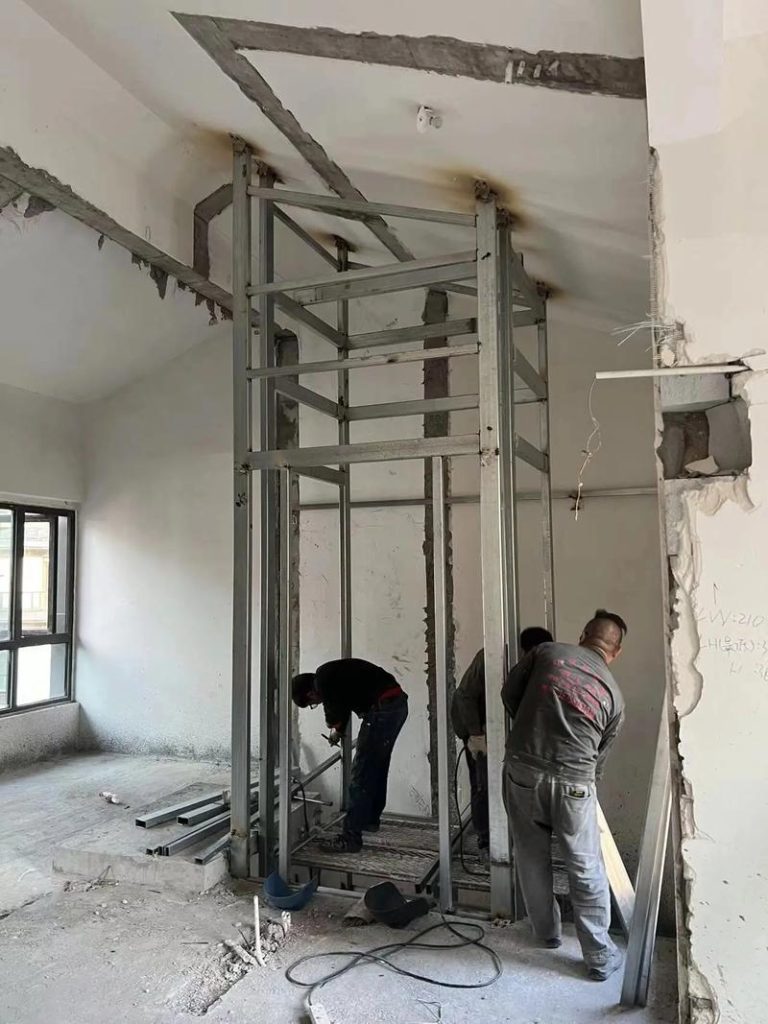компании Лифта Шэньян Сайборуй

Home Lift & Elevator for Private House
Home Lift for a Private House: A Modern Solution for Comfort and Accessibility
Installing a home lift in a private house is no longer just a luxury; it has become a practical solution for enhancing comfort, ensuring accessibility, and increasing the property’s market value. If you are considering whether to buy a home lift, this guide will help you understand the different types of residential elevators, their costs, installation nuances, and how to choose a reliable supplier.

Why Install a Home Lift? The Key Benefits
Adding a residential elevator offers significant advantages that go beyond mere convenience:
- Ultimate Comfort: Effortlessly move between floors, especially with heavy luggage, groceries, or for elderly family members.
- Accessibility (Barrier-Free Living): An indispensable solution for individuals with limited mobility, including wheelchair users, the elderly, or those recovering from injuries.
- Increased Property Value: The presence of a home elevator makes your property more attractive on the market, particularly in the luxury and high-comfort real estate segments.
- Space Efficiency: Modern home lift designs are compact and can be seamlessly integrated into both new builds and existing home layouts.
Main Types of Home Lifts: Which One is Right for Your House?
Your choice depends on your budget, available space, and specific needs. Here are the primary types of home elevators:
1. Pneumatic (Vacuum) Home Lift
- How It Works: The cabin moves inside a transparent tube using a difference in air pressure.
- Pros: Requires no traditional shaft or separate machine room. Features a modern design and relatively quick installation (often 2-3 days).
- Cons: Limited travel height (typically up to 3 stories), higher initial cost, and can be noisy during operation.
- Ideal For: Contemporary homes with a minimalist aesthetic where design and the absence of major construction are key.
2. Screw Drive Home Lift
- How It Works: The elevator car is lifted and lowered by a motor-driven screw that rotates inside a stationary nut.
- Pros: Extremely compact design, requires minimal pit depth (as little as 4-6 inches), and can be installed in virtually any location with minimal structural changes.
- Cons: Slower travel speed and a ride quality that may be less smooth compared to other systems.
- Ideal For: Retrofitting into tight spaces or homes where installing other types of lifts is structurally challenging.
3. Traction (Electric) Home Elevator
- How It Works: A classic system using a counterweight and an electric motor with a pulley system.
- Pros: Offers high speed, a very smooth ride, proven reliability, and a high load capacity.
- Cons: Requires a dedicated shaft and a machine room (or a machine-room-less model with a drive mounted in the shaft). Installation is more complex and can be costly.
- Ideal For: Larger homes that were designed with an elevator shaft during construction or have ample space for a new shaft.
4. Hydraulic Home Elevator
- How It Works: The cab is powered by a hydraulic piston that pushes the elevator upward using fluid pressure.
- Pros: Exceptionally smooth and quiet operation, capable of lifting very heavy loads.
- Cons: Requires space for a hydraulic power unit, potential for fluid leaks, and is generally less energy-efficient.
- Ideal For: Projects where silence and ride smoothness are the top priorities, and where space for the power unit is available.
Next Steps: Cost and Choosing a Supplier
The cost of a home lift varies significantly based on the type, number of floors, customization, and installation complexity. It is crucial to:
- Get a Professional Assessment: A reputable supplier will offer a free consultation to assess your home and recommend the best solution.
- Compare Quotes: Get detailed quotes from several home elevator companies that include equipment, installation, and long-term maintenance.
- Check Reviews and Warranties: Choose a supplier with strong customer reviews, proven experience, and a comprehensive warranty.
Investing in a home lift for your private house is a strategic decision that enhances daily living and adds lasting value to your property.






